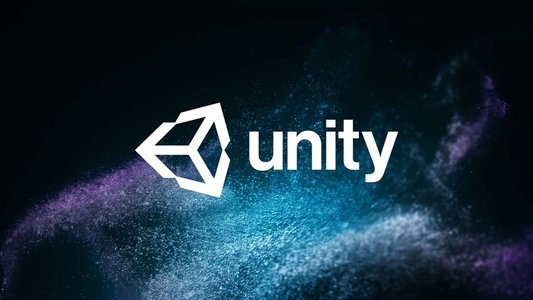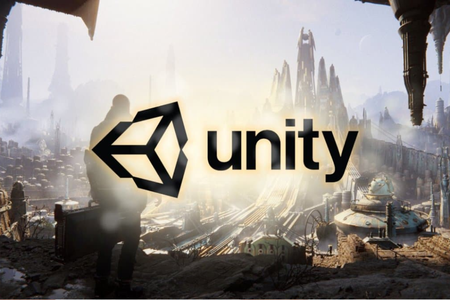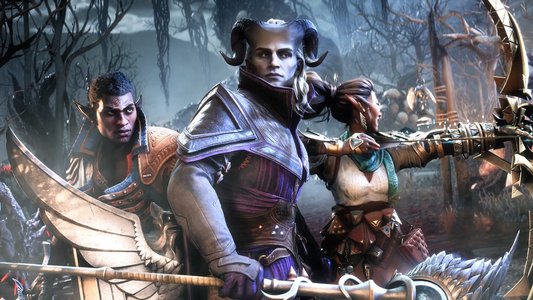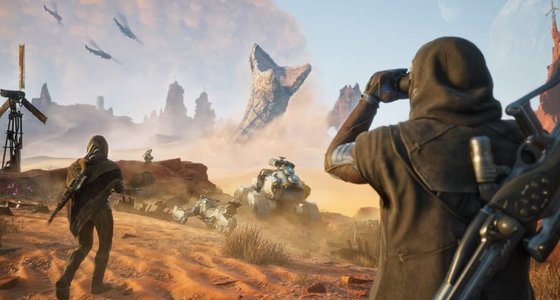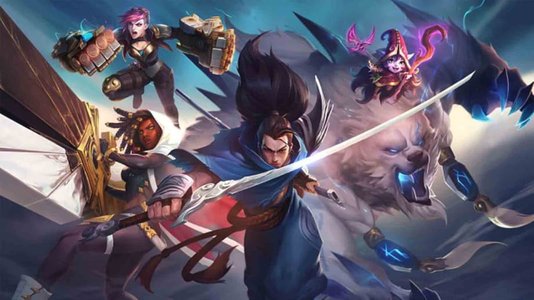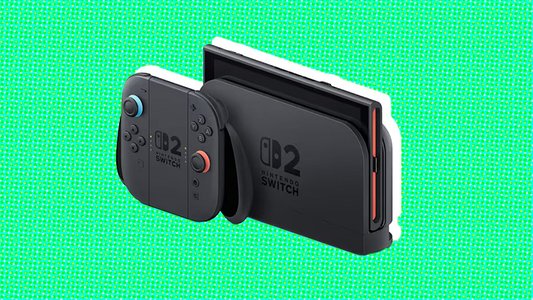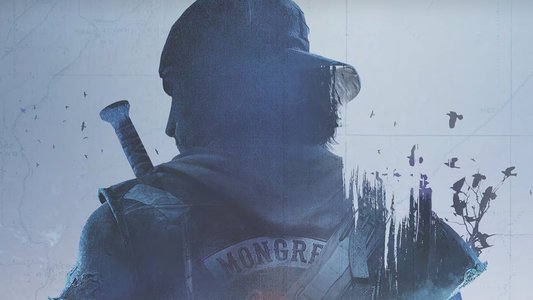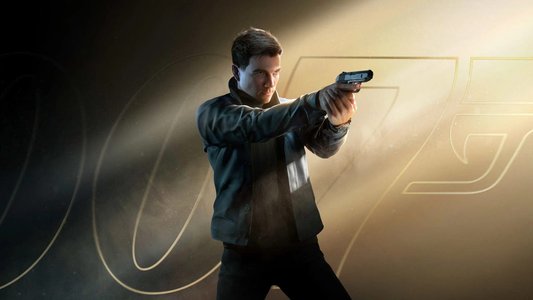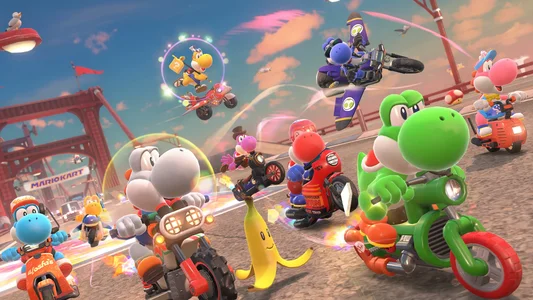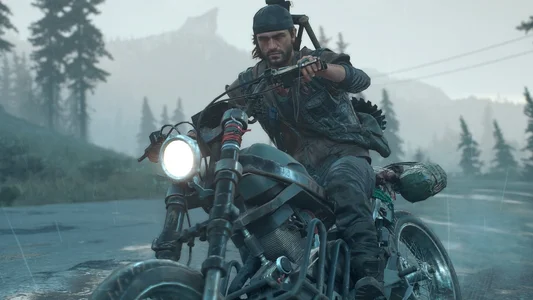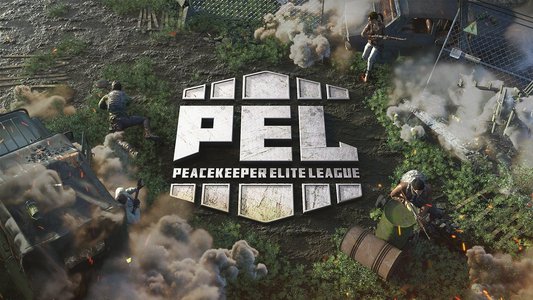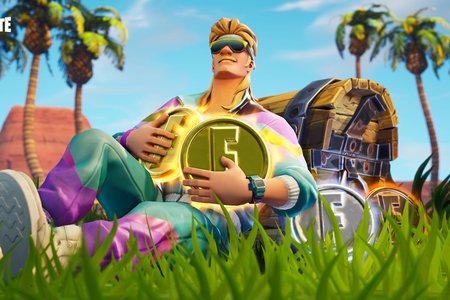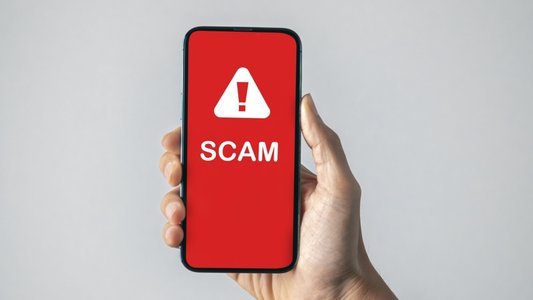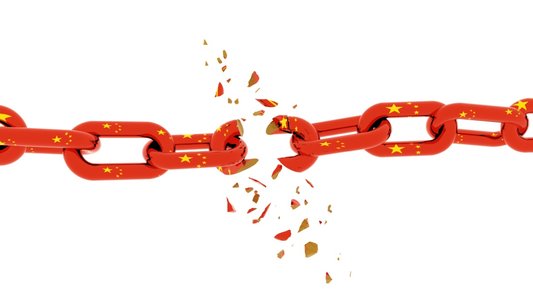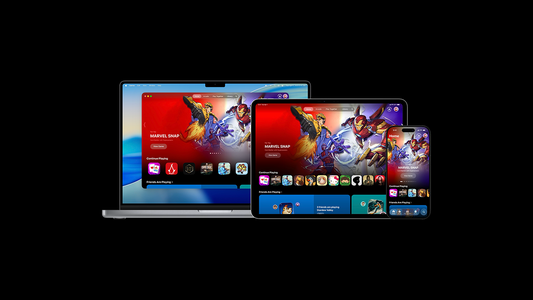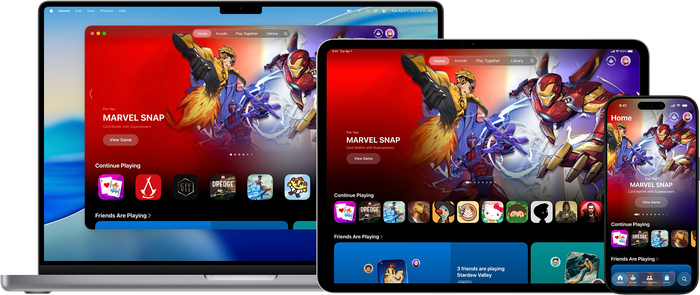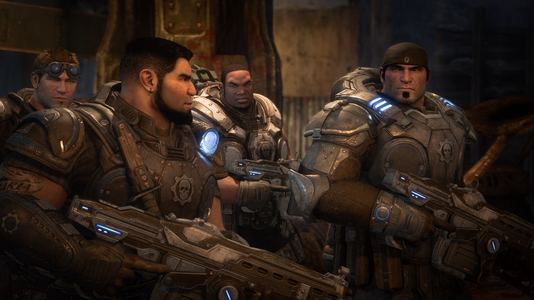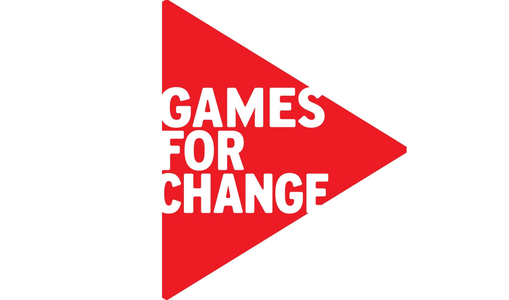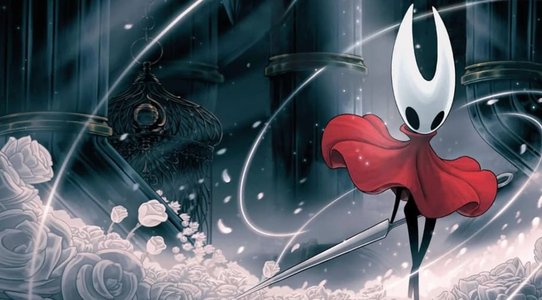This interview is part of our Road to the IGF series. You can find the rest by clicking here.
Through a series of varied vignettes following adorable bunnies suffering through horrible events with an absurd cheer, Nathalie Lawhead's Everything is going to be OK explores the unfair tragedies and situations in life through a lens of ridiculousness and hope.
The Nuovo Award-nominated experience, which carries players through dozens of different situations and interactions, shrugs off the idea of the player being in control, giving them minor interactions that might not change the outcome, but may at least give them some comfort or a smile in the face of their lives falling apart.
Gamasutra spoke with Lawhead about creating this varied experience, and what it means to make a game that speaks up about the pains many suffer through alone.
What's your background in making games?
I started as a net-artist in the late 90's (early 2000's). My first piece was released in 1999. It was an online interactive poetry project. Poetry was fully animated, and placed in "spaces" where people could interact with the literature. Visually, think of a marriage between Disney's Fantasia, and Tim Burton. It featured a lot of traditional animation. Some critics described it as "Burtonesque" bordering on both terrible and beautiful. One of the most haunting experiences they've ever had, etc...
It was funny because someone called it "Meander Ware" because there was no purpose to it other than exploring and reading. So I guess you could call it an early walking simulator.
The idea was that you experience the writing (poetry) on another level, much more personal. Rather than just reading it, you are inside an environment that is the actual poem. Because of interactivity, I thought, art could be much more impactful. Instead of just being a passive bystander, or witness (as when you are just reading someone's writing), you are part of the piece and partly responsible for outcomes. It got quite a cult following. People were saying that they'd "never seen anything like it", etc...
It was doing really well in terms of how it was received until gamers picked it up. It got posted on all sorts of forums and then people started writing about it calling it a "game". The result was people then complaining "What the hell am I supposed to do in this game, lol this is weird". When I answered that you're supposed to read the poetry, the resulting commentary was that this is not fun and sucks. So it was my first experience with the baggage associated with the label "game", and how it dragged down interactive art that was by no means intended to be seen or "played" as a game.
No mater how hard I fought the label, I just couldn't stop people from sharing it as a game or posting it as one. At one point I even put in a disclaimer that you basically had to "I agree to" saying that "THIS IS NOT A GAME!"
Didn't work.
Eventually I stopped fighting the label, and started calling what I do games. If you can't beat it, then try to make it better, I suppose. I'm still very much at odds with the popular conception of what a game is. My view of it is that it's very limiting, and there are way too many rules to follow in order to make something people consider a "good game".
Games really don't have to be "good". They can be different things. The experience can be just as legitimate, interesting, enticing... as if you followed all the rules. With rules like basic design principles, usability, etc... I see game design as a type of language. You communicate things to the player, and create things to do. You make an environment, and create an agreement between your game and the player that this is how you will interact with it, these are the things to do, and then you honor that language's pattern to the end... basically.
There is a popular language that most designers follow to make what is considered a good, entertaining game. These are all great, but sometimes that is just one way of making something. The popular way of making something, and the popular mindset, isn't the only mindset. You can come up with your own language. Make your own rules. Re-think modes of communication. This is what has always fascinated me about interactivity, and art made on computers.
I'd be OK with the label "game" if it weren't so dragged down by the million issues, and conservative mindsets, the medium has. Before "Everything is going to be OK" I thought games were much more inclusive. It certainly seemed so seeing games from my happy indie bubble. I thought that I wouldn't experience the same type of crazy, out-of-hand toxicity that I experienced with this first project. Things got really bad with that one.
After some of my experiences with Everything is going to be OK I see that there is still a lot of work to do in carving out a space, let alone just basic understanding, for things like this. We need players that are open minded and civil as well. I've been arguing a lot over Twitter that, because of all the baggage, toxicity, and otherwise conservative player puritanism, associated with the label "game", we shouldn't say "games are art" until we've made our mindsets more inclusive to different experiences. It's just lip-service at this point.
If a medium's mode of expression is largely to "sell" and "entertain", and we shut out alternative expressions in that medium, then it's really not fit to be called art. It's just mainstream entertainment that we call art so that we feel intellectual about our gaming hobby.
Either way, for my own work, I feel like this will be a pervasive uphill battle that's far from over.
So whatever you want to call it... I make "games" to some people, and to others it's weird art bullshit... people seem to like it and I'm not going to stop. I love this art. I kinda live for making it.
How did you come up with the concept?
The idea behind Everything is going to be OK had been brewing for a long time. I wanted to make something that is absolutely human. That breaks the veil of shame hovering over victims of bad things.
We hold these views as a society that if someone is down on their luck it is their fault. I know this to be absolutely true for sexual assault and poverty. You live with these terrible things and there is no way you can talk about it because it's just shameful. The victim is pretty consistently blamed. Speaking up can cost you everything.
For me a big issue has been dealing with sexism throughout my career. It really grinds you down as a person, and how you see yourself. It was crazy while I was making this, because I've been getting nothing but confirmation that this is the right thing to make. I mean, during development the Weinstein thing blew up... Trump got elected... the world is basically burning. I blame the patriarchy. It's all this bottled up bullshit that disadvantaged people have to just "live with". It's ridiculous. How will things ever change if we consistently silence, shame, and discriminate victims for speaking up?
For me, making Everything is going to be OK is my way of speaking up. If I was going to make anything this time, it was going to be something that absolutely goes in that direction. No shame, no fear, I'll just talk about everything that I can't talk about.
I made this because, as a victim, I have gathered a lot of strength from hearing stories of other victims. There is a type of isolation in the shame. This isolation makes you think that it only happens to you because there is something wrong with you. You are even crazy for thinking that it's a problem, but there is something in you that knows this isn't true. This social issue really is wrong. It can't just be you.
So, this is something I made for anyone else that may have endured struggle like this. It's a little flare saying that you're not alone. There's nothing wrong with you. You're a hero, and should be proud. There is nothing to be ashamed of in talking about these topics.
I realize that the topics that Everything is going to be OK cover are fairly weighted. It could easily become too depressing if I JUST talked about it without some way of lifting up the messages.
I use humor and absurdism to make the messages more approachable. It lifts the messages up, and gives them a type of tone that I feel like a lot of people can resonate with. After all, life is ridiculous.
Humor is extremely powerful when you talk about social issues. Somehow, by laughing at the worst things, you can see them for what they really are. You get strength. You don't have to win. There might not be any way of surviving, but at least you are laughing in the face of certain doom.
It's a type of perspective that, more than ever, I feel like we need right now.
On the surface, Everything is going to be OK can easily be brushed off as dark comedy, but as you interact with it, these issues start to unravel. It facilitates a type of discussion, and reflection. I don't think it would have been possible, or as approachable, without the comedy aspect.
What development tools were used to build your game?
I make my own tools. It's a combination of JavaScript, Actionscript, C++ (for extending)... Mostly made in Animate, outputting to AIR.
Seeing how others make their games, I don't think I comfortably fall in any normal category to adequately answer this question. I like hacking and making my own stuff... I feel like it's worth it because it ends up being very different.
For example, the treatment on the backgrounds (overall degraded glitch look) is from shaders I made for this. I'm not that hot on discussing the technical stuff because people hear certain keywords and then I have to listen to their stupid uninformed views. I suppose you call that mansplaining. I do all this myself, so I think I'm fairly technical. I mean... there's a chatbot in there that's written in PHP. I love PHP. Everything is custom. I could list off all the languages used, tho that would be tedious.
There's not a lot of "drag and drop" going on. Each page in Everything is going to be OK is built pretty much from the ground up. I don't often re-use code because it's not as exciting... or I'm lazy. There's a weird logic to this. Building it yourself takes a lot more time, but it's totally worth it if you want to make something that's unique. I mean, fine. I'm not that great of a programmer, and don't really view what I do as programming. I just kind of make it work.
How much time have you spent working on the game?
I started after the 2016 IndieCade. It took about a full year of non-stop, completely focused development.
It's so cool! I was at IndieCade as a finalist for ARMAGAD that year, and then I came back as a finalist for Everything is going to be OK. Totally back to back. I'm so happy about how this worked out.
When I work on something I tend to be very obsessive. The current project is all I can think about. This is not ideal, and I'm in no way recommending that others do that. You should take care of yourself.

Everything is going to be OK explores a lack of control in various ways. What thoughts went into exploring this through a medium that is largely about giving the player complete control?
It was an interesting problem to solve. The game discusses things like trauma, survival, basically being at odds with a hopeless situation... Making these topics "fun" just didn't seem right. You can't make this fun. It's not fun. There is nothing fun about this in real life. Sometimes life just isn't something you can win. You can't "beat" it. You have to be coming from a place of disadvantage to fully understand just how hopeless things can be sometimes. Making a "game" that admits this was very important.
At the very basis, just admitting that things are hopeless introduces a type of hope. You're not lying to yourself. You stand a chance as long as you're fighting to be here. It's about persistence.
From the point of view of accurate commentary, surrendering control, and exploring that dynamic made the most sense.
In most of my work I tend to gravitate toward rejecting the player. Everything is out of control, and you are just barely managing while not completely understanding what's going on. I like this. It's already great for comedy because it's disarming and they have to eventually laugh at how ridiculous the circumstances that the game puts them in are.
For Everything is going to be OK, this served as a much more pointed commentary on life. Nobody is in control. We all just barely manage, if at all. Each page creates an environment where the player has limited control. They manage. Interactions may or may not influence the outcome, but it's not about that. Things are out of your control. The game rejects the player, by being the thing that's in control.
This backward way of communicating interaction helps the message a lot, but it also totally aggravates some people. Somehow the circumstances become much more personal. Not being able to "win", and being a victim instead, almost insults some people. This has been absolutely fascinating to watch.
For example, when I was demoing it at E3, a few people remarked that the gore was a bit too much. It kind of blew my mind. I mean, it's cartoon violence we're talking about here. You could literally look over your shoulder and see huge monitors on the ceiling where people where being shot in the face. Somehow that's OK, but if you are asked to experience violence from the view of a victim, on a much more emotionally realistic level, where you are just surviving... somehow that makes it too graphic.
It reminds me a lot of what Seemingly Pointless went through when You Must Be 18 Or Older To Enter was banned from Steam. The article he wrote on it was SO on point. Games really need to grow up.
We have an incredibly powerful medium here (call it "games" or not), but this baggage is what's hurting it from really being a mature art form. Somehow it's much more appropriate to shoot people, but if you are a person in a situation where you are fighting to exist, then it's graphic. We have to come to a point where deeper emotional content, powerless contexts, vulnerability, and just overall "not being fun" is just as accepted as anything else is. Other critics have said all this much better tho.
Also, you cannot really say that you're tired of the "are games art or not" discussion until you've made something that really honestly pushes its luck like this. For myself, working on this has been eye opening.
Everything is going to be OK conveys a message of hope and humor across many fragments of different stories. What made you feel that you had finally said what you wanted to say with these quick narratives? What made you feel that the experience was complete?
I'm pretty sure a game is done when you're sick of working on it lol.
There where some topics I really wanted to cover. Social awkwardness, and rejection, in Pages 18 and 19. The characters drowning in lava while reassuring each other in Page 24 was a pretty important metaphor. Happily falling on spikes while yelling how amazing life is in Page 1 was a must.
Page 6 was a lot like social media. Walk up to someone, say something totally shitty, and they follow you because they've found a kindred spirit.
Some of the pages I feel like I did mostly for myself, and I'm so happy for the people that resonated with them. Page 11 isn't funny at all. It's fairly on point for how it's like to emotionally come to grips with a bad experience. Page 10 is similar. I had a lot of back and forth if I even want to put that one in. Then someone close to me started dating a guy, and ALL of her girlfriends started panicking and giving that type of dating advice. The stuff in there isn't even exaggerated. It's just quotes from these various conversations... so I was like "Yeah, this is totally going in there." This happened while I was working on that page, and kind of personally justified why it had to go in.
The poetry is hidden inside of various pages to better frame the themes. Page 10 opens up a poetry window if you finish it, or decline to play it at the beginning prompt. Here, the poem in the "POEM 02" icon is probably, for myself personally, the most important message I could put into Everything is going to be OK. I have been in this place so often. Just putting these words into this "game" felt liberating. At least it got said.
I'm planning one final update that's focused on writing. The writing will be completely on point, no metaphor, based on personal experiences. It's terrifyingly personal for me. I can't talk about this stuff with people t
No tags.








